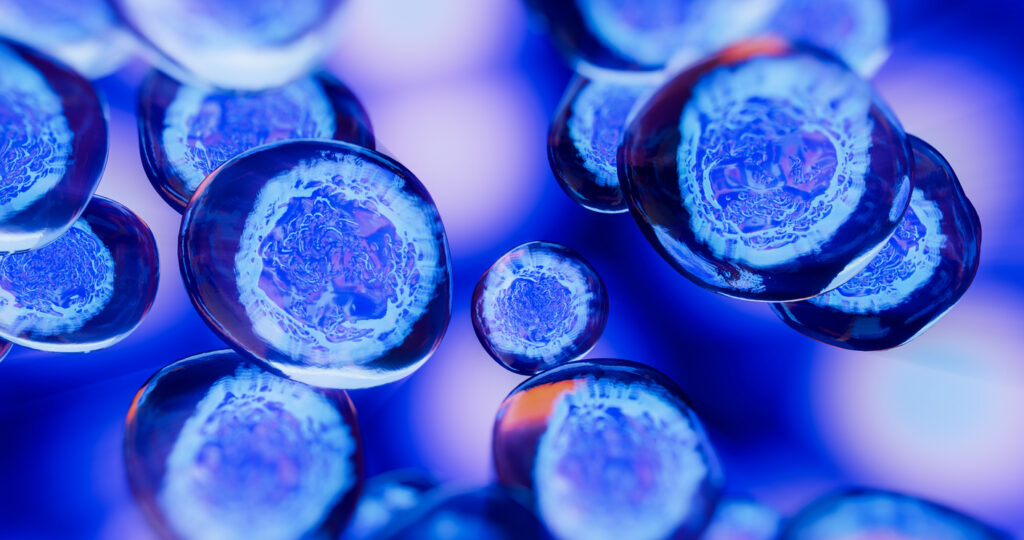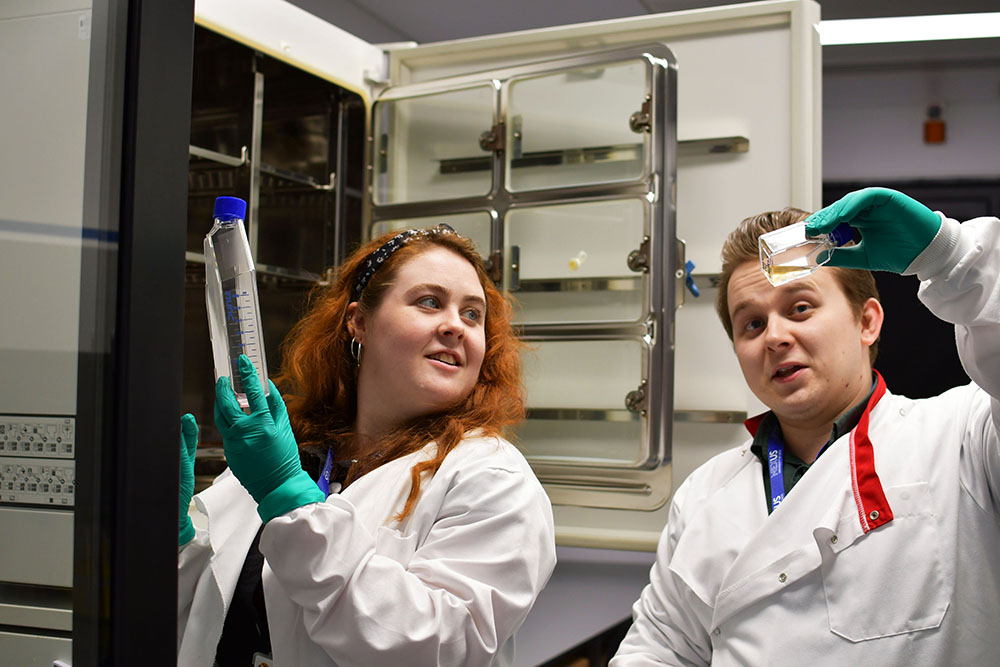Introducing The Northern Cell Metrology Hub
The Northern Cell Metrology Hub (the Hub) joined the Nexus community in Leeds earlier this year, as a centre of innovation for clinical diagnostics and medical technology.
Its launch in Leeds is the first step in a strategic partnership between the University of Leeds, Nexus, and the UK National Measurement Laboratory (NML), hosted at leading global life science tools company LGC. The Hub supports the health and life science industries to achieve safer, more reliable, and economic solutions through its expertise in measurement technologies relating to cells.
Cells are the basic building blocks of life and there is a need for reliable methods to assess cell measurements such as counts, viability and functionality. Cell-based therapies are an emerging field with the potential to treat numerous diseases, but face measurement challenges that limit their widespread translation and commercialisation.
Jeanne Rivera, Northern Cell Metrology Hub Lead, explains: “As novel technologies are introduced, there is a need to also advance our measurement technologies to better support product characterisation and assist manufacturing and regulatory pipelines. As a national measurement laboratory, we have a role in improving confidence in cell measurements that support standards development.”
City-exclusive innovations
The Hub’s laboratory is one of the most diversely equipped in the world, providing traceable and increasingly accurate cell measurements, which are of growing importance to the high tech and high value health sector.
The laboratory also features technology that is exclusive to the North, including the Attune CytPix Flow Cytometer machine which has the unique capability of combining cell images with measurement data. As the only one in the North, the innovation has already led to wider collaborations and partnerships with local industry, academia and NHS Trusts.
A state-of-the art ultra-low freezer used for the long-term storage of cells and cell banks keeping them at a temperature of -150° Celsius, was also purchased using funding provided by the West Yorkshire Combined Authority. Traditionally cells would be stored within nitrous oxide to keep them stable; the ultra-low freezer provides a more economical and sustainable alternative.
Supporting Yorkshire start-ups
Supporting Yorkshire start-ups is a key objective for the Hub. Innovators that receive funding via schemes such as Innovate UK’s Analysis for Innovators Programme can access the Hub to help find solutions to their innovation challenges and address existing measurement problems. An example of where this is already working well is the partnership between the Hub’s neighbour at Nexus, Keracol, a company with a particular focus on sustainability.
Fostering and growing talent
The laboratory team at the Hub is led by Jeanne and made up of University of Leeds graduates. The high-quality skills and expertise of this team of homegrown talent is already being recognised, with the Hub acting as a training centre for the wider NML organisation and the North, helping upskill and providing knowledge transfer in this area.
Why Leeds?
Collaboration was a major driver for choosing Leeds’ Nexus innovation community as the home of the Hub. Situated at the heart of Leeds’ Innovation Arc, with a strong understanding of the UK health tech sector, Nexus makes it easier and faster for innovators to access funding, develop and test their prototypes and bring high-value innovations into the NHS.
The support Nexus provided in setting up the Hub was fundamental, as was funding provided by West Yorkshire Combined Authority, which has enabled and will continue to enable investment in sustainable, future-fit technology.
Jeanne Rivera explains: “There is a massive influx of health innovation companies choosing to be based in Leeds and it was important that we lived alongside them, where academia and industry co-exist and collaborate. Leeds and Nexus provide a unique opportunity in this sense with so many possibilities for partnerships, whether that’s with the start-ups based within Nexus, Leeds Teaching Hospitals NHS Trust, or the universities.”
NML has other regional hubs in Glasgow and Belfast which both partner with their respective universities and acted as a blueprint for the Hub in Leeds.
Harry Barraza, Relationship Development Director, NML, explains: “It’s not a secret that industry working in partnership and alongside academia can be challenging but in Leeds we have managed to do this successfully in the short time the Hub has been operational and we are excited to expand this. Our links with the University’s Astbury Centre, for example, and the fact that we have a team member who works within both the Hub and the University, provide the ideal environment for cross-sector collaboration.”
The Astbury Centre brings together researchers from across the University of Leeds, mainly from physics, the biological sciences and chemistry with researchers working together to understand health and disease in molecular detail. The Hub is working closely with the Centre, sharing vital knowledge and equipment.
Harry continues: “The Astbury Centre is one of the best centres for structural biology and biological measurements across the UK – particularly for bio-imaging and flow cell cytometry, which are complementary to NML’s cell metrology research strengths. In addition, the presence of a highly skilled pool of graduates in biological sciences in the region makes it easy to accommodate future plans for growth and engagement with other leading research groups at the University and beyond.”
This close collaboration with the University is also reflected in the parallel role that Sally Boxall, Bio-imaging Facilities Manager at the University, fulfils for both the University and the Hub. Sally supported the set-up of the Hub and she works across both teams with the Hub’s scientists having direct and speedy access to her extensive knowledge and expertise, further aligning the two organisations and accelerating progress.
Beyond the North
Longer-term, the Hub aims to provide training in metrology and measurements across a more diverse portfolio of universities throughout Yorkshire and beyond.
It also aims to expand its work and influence nationally and internationally. The Hub’s cells team are active participants in the cell analysis working group of the Consultative Committee for Metrology in Chemistry and Biology (CCQM) and ISO committee [1].
With other international opportunities in the pipeline the Hub stands to promote and represent the thriving health innovation ecosystem in Leeds on a global stage.
Nexus Director Gareth Scargill said: “We’re proud to be home to the Northern Cell Metrology Hub, a fantastic resource for our region, further cementing its position as a centre for excellence for healthcare and life sciences. We’re excited to support the Hub’s future plans and collaborating to drive innovation that has a positive impact on health and wellbeing.”
Find out more about the work of NCMH and NML HERE.
[1] The ISO is an international committee consisting of international measurement institutes dedicated to improving cell measurements and development of standards through interlaboratory studies.

